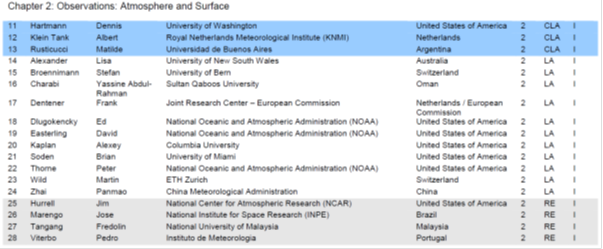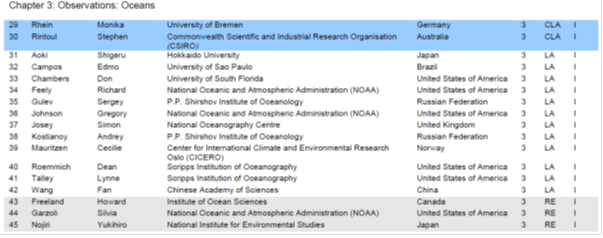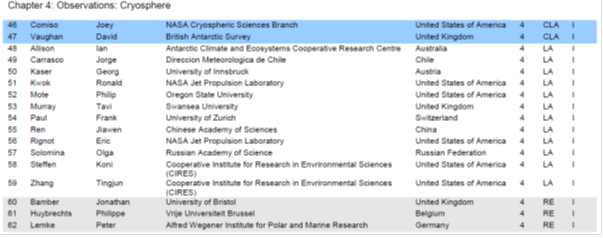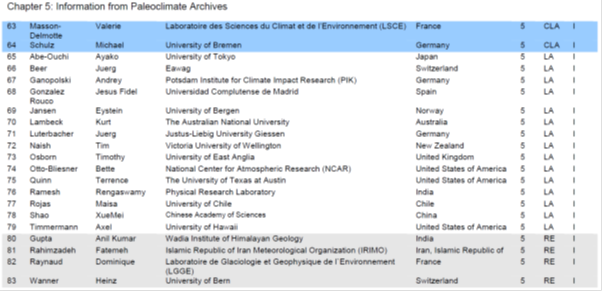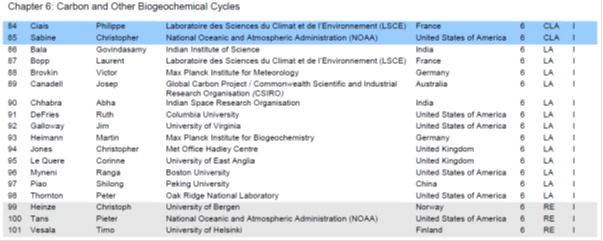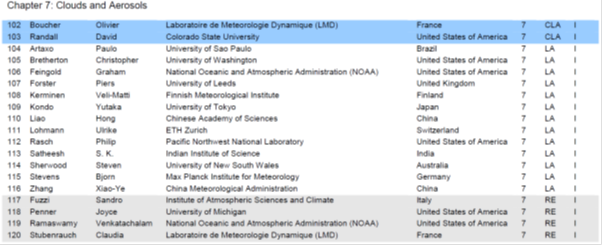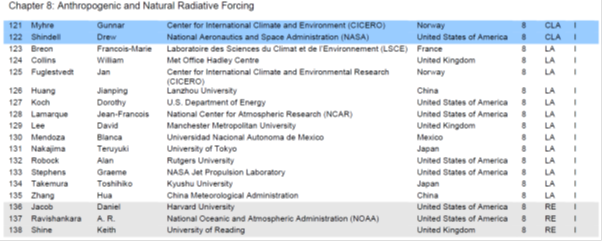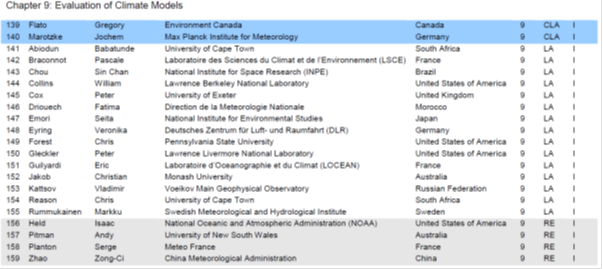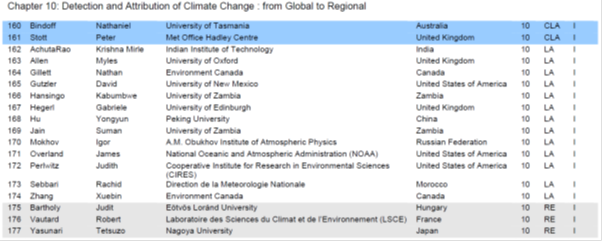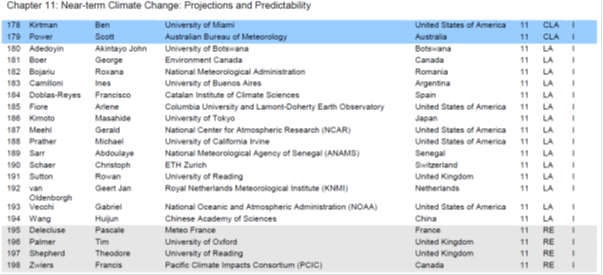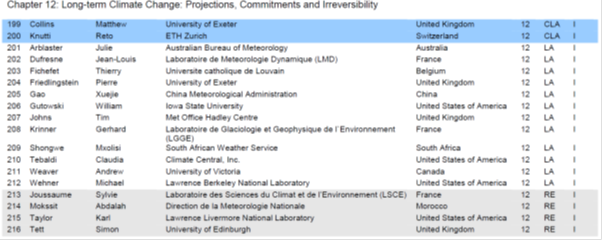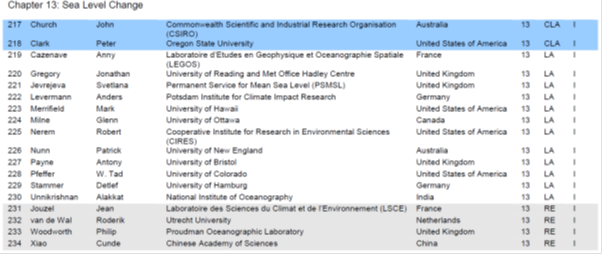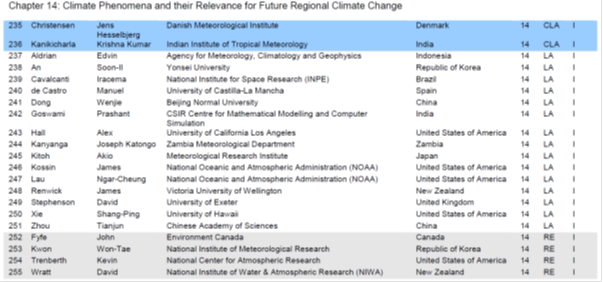IPCC - a primer for conspiracy theorists
In reading media commentary concerned with the Intergovernmental Panel on Climate Change, one could be led to believe it is some monolithic United Nations body with its own computer models, undertaking its own research and supported by extensive full-time staff.
This can naturally feed into suspicions this is a body driven top-down by a small leadership group intent on their own political agenda.
But the IPCC is driven by bottom-up co-operation between scientists on a voluntary basis, not by United Nations staff issuing orders
The reality is rather different. The IPCC in fact has very few permanent staff of its own and certainly hasn’t got any of its own climatic computer models. The IPCC is not really a government body in the same way you’d think of the Department of Defence or Justice or Environment, with their strict hierarchies and controls. It’s actually more like an agreed process for a bunch of people from different research institutions and countries to voluntarily co-operate in developing an agreed upon summary of thousands of existing research papers (undertaken external to the IPCC process).
How did all this come about, you might ask?
Well, the story explained to me by Neville Nicholls, past-president of the Australian Meteorological and Oceanographic Society, suggests something rather innocent. Back in the 1980s at a conference of meteorologists, one hailing from Africa complained she was getting lots of requests for information from her government on the possible impacts of human-induced global warming. She wasn’t well equipped or resourced to answer them. She asked whether it might be possible for the meteorologists to arrange an assessment that could summarise what was known about global warming, which could be used by governments such as her own. And so the IPCC Assessment report process was born.
You can judge for yourself the credentials of the report authors
Down the bottom of this article I’ve pasted in a listing of every author of every chapter of the IPCC Fifth Assessment Report on the state of the physical science on climate change. You’ll see the 255 authors hail from a wide array of universities, research institutions and government scientific bodies mainly from OECD nations such as Australia, the United States, and the United Kingdom. These authors income is derived for the most part from these universities and research bodies. They don’t receive their income from the IPCC or the United Nations. Rather their work on the assessment report is an extension of their existing primary research work.
Through the extraordinary wonders of Google, you’ll most likely be able to find out the qualifications and track record of research for each of these authors. Not all of them are at the pinnacle of their fields, but a large proportion have an impressive track record of research. Certainly the co-ordinating lead authors (those listed at the top for each chapter) are of very high standing. In addition you are probably already familiar with the names of many of the bodies they work for. And none of them work in the political science wing of a university.
There are several safeguards against hi-jacking by a single political interest
Now it’s important to recognise that neither the assessment reports, the authors or the process itself are flawless. Mistakes are made, after all it’s driven by human beings. But there are a range of safeguards that provide some reassurance that it’s unlikely to be hi-jacked by a particular political agenda.
The IPCC process is ultimately governed by the 195 national governments that are members. For some that is a reason for worry. But think about this for a second – this number of governments are likely to represent a kaleidoscope of political ideologies and perspectives. If the IPCC was completely stacked with a bunch of leftist, green radicals intent on completely distorting the evidence surrounding climate science, then why on earth do governments with ideologies opposed to such an outlook allow this happen?
Governments get to nominate authors and the get to vote on the IPCC management. When the first IPCC assessment process commenced George Bush Snr was the US President and Margaret Thatcher was UK prime minister. Both nations had significant representation in the authorship of the report. The prior Fourth Assessment Report was developed with a range of Australian and US authors involved that were nominated by the Howard and George Bush Jnr governments.
Now the development of the reports is not simply a product of authors. These authors produced a first draft of the physical science which was distributed to 659 expert reviewers for comment. In reality getting onto this expert reviewer group is not particularly onerous and a range of self-titled climate sceptics have participated in the past as expert reviewers, as well as others with excellent credentials in climate science. It is not a closed shop.
Each comment or criticism made by the expert reviewers on the report is documented and responded to in writing, with the response also documented. These comment logs are available for anyone to look at if they have some concerns that certain issues are being ignored or hidden under the carpet. This process of review leads to a 2nd draft which is then reviewed again by the experts but also by government officials. Again all comments and criticisms as well as responses are documented in a log available to the public.
Lastly the final report at is core is meant to be a summary of the existing research literature. There is nothing to stop you or anyone else from reading the original source material upon which the report is based. In addition the report contains extensive referencing throughout allowing you to check-up on reports to see if they really say what the IPCC says they say.
Independent reviews by scientists suggest the IPCC assessment is a fair reflection of the science
It’s worth noting that back in 2001, President George Bush Jnr’s administration, suspicious of the IPCC, asked a panel of eleven top American Scientists to review the IPCC’s assessment of climate science. This panel included a favourite of the climate change doubt lobby – Richard Lindzen.
The panel of scientists told President Bush:
“The committee finds that the full IPCC Working Group I (WG I) report is an admirable summary of research activities in climate science, and the full report is adequately summarized in the Technical Summary.”
In addition the IPCC was also subjected to a review in 2010 by the Interacademy Council, a body that brings together several of the major nations’ academies of science. It found that there were a number of areas for improvement in how the IPCC operated but overall:
“The Committee concludes that the IPCC assessment process has been successful overall and has served society well.”
List of IPCC Fifth Assessment Report authors by chapter for Working Group 1 - Physical Science

